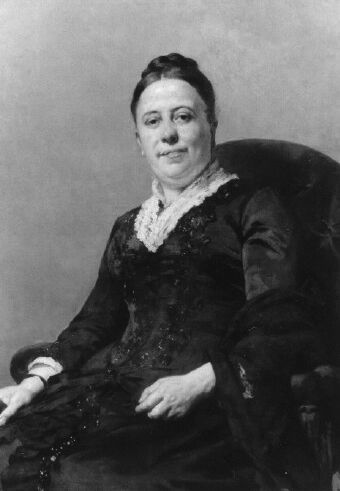Isabelle Gatti De Gamond on:
[Wikipedia]
[Google]
[Amazon]
 Isabelle Laure Gatti de Gamond (28 July 1839 – 11 October 1905) was a Belgian educationalist,
Isabelle Laure Gatti de Gamond (28 July 1839 – 11 October 1905) was a Belgian educationalist,
Isabelle Gatti de Gamond
biography at the Centre d'Action Laïque. {{DEFAULTSORT:Gatti de Gamond, Isabelle 1839 births 1905 deaths Belgian feminists Belgian suffragists Politicians from Brussels Belgian educators Belgian educational theorists Belgian women's rights activists Belgian people of Italian descent Belgian socialist feminists 19th-century Belgian educators People from Uccle
 Isabelle Laure Gatti de Gamond (28 July 1839 – 11 October 1905) was a Belgian educationalist,
Isabelle Laure Gatti de Gamond (28 July 1839 – 11 October 1905) was a Belgian educationalist, feminist
Feminism is a range of socio-political movements and ideologies that aim to define and establish the political, economic, personal, and social equality of the sexes. Feminism incorporates the position that society prioritizes the male po ...
, and politician.
Life
Isabelle Gatti was the second of four daughters born to Giovanni Gatti, an Italian artist, andfeminist
Feminism is a range of socio-political movements and ideologies that aim to define and establish the political, economic, personal, and social equality of the sexes. Feminism incorporates the position that society prioritizes the male po ...
writer Zoé de Gamond
Zoé Charlotte de Gamond (11 February 1806 – 28 February 1854) was a Belgian educator and feminist who sometimes wrote under the pseudonym Marie de G***.
Life
Zoé de Gamond was born in Brussels into a wealthy liberal family. Her father, Pierr ...
, of Brussels. Born in Paris, her family moved to Brussels when she was five, having lost their fortune in a failed phalanstère
A ''phalanstère'' (or phalanstery) was a type of building designed for a self-contained utopian community, ideally consisting of 500–2000 people working together for mutual benefit, and developed in the early 19th century by Charles Fourier. ...
—a utopian community inspired by the writings of utopian socialist Charles Fourier—at Cîteaux.
Her mother, an inspector of girl's schools, died in 1854, and the family's genteel poverty forced Isabelle to seek employment. She found this in Poland, working as a governess
A governess is a largely obsolete term for a woman employed as a private tutor, who teaches and trains a child or children in their home. A governess often lives in the same residence as the children she is teaching. In contrast to a nanny, th ...
with a Polish noble family. It was at this time that she became an autodidact
Autodidacticism (also autodidactism) or self-education (also self-learning and self-teaching) is education without the guidance of masters (such as teachers and professors) or institutions (such as schools). Generally, autodidacts are individua ...
, teaching herself Ancient Greek, Latin, and philosophy
Philosophy (from , ) is the systematized study of general and fundamental questions, such as those about existence, reason, knowledge, values, mind, and language. Such questions are often posed as problems to be studied or resolved. Some ...
.
She returned to Brussels in 1861, and continued her education by following public courses organised by the city government. Her ideas on education had already been formed, and in 1862 she launched the journal ''L'Education de la Femme'' (''Women's Education'') which championed the cause of schooling for girls.
In 1864, with the financial assistance of the city council, she launched the first systematic courses of secondary female education (''Cours d'Éducation pour jeunes filles''). Exceptionally for Belgium of the time, this venture was entirely independent of the Roman Catholic Church, and provided the very first organised secular education for women in Belgium.
The Catholic press opposed her work, but the school was a success. Among the teachers were Marie Popelin
Marie Popelin (16 December 1846 – 5 June 1913) was a Belgian lawyer and early feminist political campaigner. Popelin worked with Isabelle Gatti de Gamond in the development of women's education and, in 1888, became the first Belgian woman to ...
, Henriette Dachsbeck, and Anna-Augustine Amoré, mother of Marie Janson. Mayor of Brussels Charles Buls was a staunch supporter and assisted in the creation of an advanced, pre-university section in 1891.
Gatti retired from educational work in 1899 and entered politics as an activist for the Belgian Labour Party. Her support for universal adult suffrage did not meet with the support of the party's leadership, who expected women to vote for the Catholic Party.
Legacy
In polls held by Belgian TV stations in 2005 to find the greatest Belgians, she was voted 55th in the De Grootste Belg, the Dutch-language series, and 88th in the Le plus grand Belge, the French-language programme. She is buried in Uccle where the street where she lived bears her name.References
* Gubin, E., & Piette, V., "GATTI de GAMOND Isabelle, Laure (1839–1905)" in E. Gubin, C. Jacques, V. Piette & J. Puissant (eds), ''Dictionnaire des femmes belges: XIXe et XXe siècles.'' Bruxelles: Éditions Racine, 2006.External links
*Isabelle Gatti de Gamond
biography at the Centre d'Action Laïque. {{DEFAULTSORT:Gatti de Gamond, Isabelle 1839 births 1905 deaths Belgian feminists Belgian suffragists Politicians from Brussels Belgian educators Belgian educational theorists Belgian women's rights activists Belgian people of Italian descent Belgian socialist feminists 19th-century Belgian educators People from Uccle